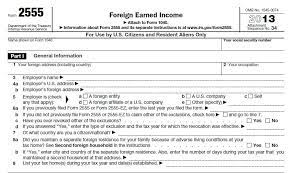T's he Tax Court in Todisco, TC Summ 2021-35, granted a wife innocent spouse relief for two tax years even though she knew about tax deficiencies in the earlier year when she signed the later year's tax return.
Ms. Gonzales was married to Mr. Todisco during 2010 and 2015. They filed a joint return. Ms. Gonzales did not have any income. Mr. Todisco worked in construction.
The IRS sent the couple a notice of deficiency denying certain job-related deductions that Mr. Todisco took.
The couple divorced in 2016, and Ms. Gonzales filed for innocent spouse relief with regards to the 2010 and 2015 tax year returns.
It was undisputed that Ms. Gonzales met the requirements of Code Sec. 6015(b)(1)(A), Code Sec. 6015(b)(1)(B), and Code Sec. 6015(b)(1)(E).
The Tax Court held that Ms. Gonzales was entitled for innocent spouse relief under Code Sec. 6015(b) for both 2010 and 2015.
The Court discussed whether Ms. Gonzales knew or had reason to know of the understatements under Code Sec. 6015(b)(1)(C) and whether it was inequitable to hold Ms. Gonzales liable for the tax deficiencies under Code Sec. 6015(b)(1)(D).
The Court said that Ms. Gonzales credibly testified at trial that she: (1) did not know any specific details about Mr. Todisco's job-related expenses for either year at issue; (2) was not involved in the preparation of the returns; and (3) did not review the returns before signing.
The Court held that even though Ms. Gonzales admitted that, at the time she signed the 2015 return, she knew about the existence of the 2010 deficiency she credibly testified that she did not know what caused the deficiency and was not involved in process of providing documents to the IRS with respect to the deficiency. When Ms. Gonzales asked Mr. Todisco to explain the 2010 notice of deficiency, Ms. Gonzales testified that he berated her.
As for determining whether it would be inequitable to hold Ms. Gonzales liable for the taxes, the Court looked to Rev Proc 2013-34, Sec. 4.03, 2013-43 IRB 397. The revenue procedure provides a list of nonexclusive factors to take into account when determining whether to grant equitable relief under section 6015(f): (1) marital status; (2) economic hardship; (3) in the case of an understatement, knowledge or reason to know of the item giving rise to the understatement; (4) legal obligation; (5) significant benefit; (6) compliance with tax laws; and (7) mental or physical health.
Based on those factors, the Court found that it would be inequitable to hold Ms. Gonzales liable.
Have IRS Tax Problems?
Contact the Tax Lawyers at
www.TaxAid.com or www.OVDPLaw.com
or Toll Free at 888 8TAXAID (888-882-92
Read more at: Tax Times blog










